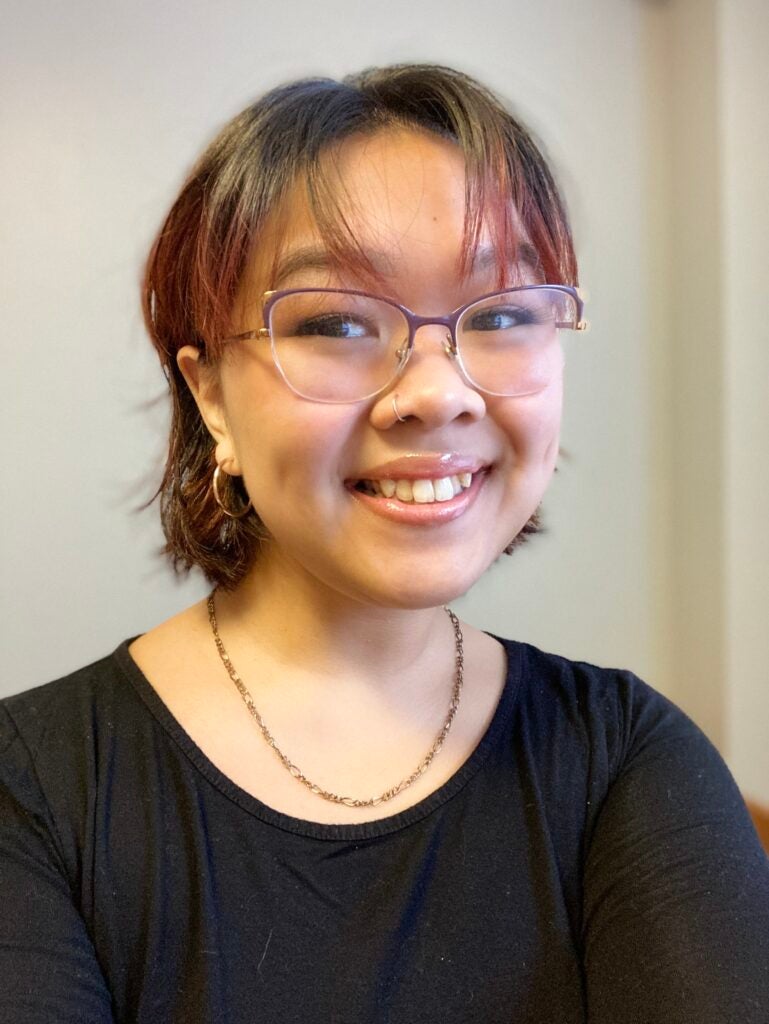Interview with Angela Nguyen (CAS ’24): Kalorama Summer Research Fellowship Scholar
Posted in Announcement News
Angela Nguyen (CAS ’24) discusses her paper, “Redefining War Crimes: The Bertrand Russell Tribunal’s Expansion of the Definition of War Crimes”
By Lindsey Gradowski (CAS ’24)

Angela Nguyen found the topic for her Kalorama Fellowship paper in an unusual place: her Metaphysics class. Bertrand Russel was an outspoken anti-war activist (and philosopher) who was the first person to argue comprehensively for a tribunal formed with the unique purpose of examining war crimes, particularly in the context of the Vietnam War. Russel’s core question, what does it mean to commit a war crime, intrigued Nguyen, who’s background focused on Vietnamese history. Nguyen’s previous experience in Professor Paula Chan’s Georgetown History course, “Atrocities on Trial,” also sparked an interest in examining our conceptions of what a war crime is by teaching her to think about how atrocities interact with concepts of justice. Based on this coursework and preliminary research, Nguyen formulated the following research question: How did the Bertrand Russel tribunal expand the definition and understanding of war crimes post Nuremburg?
The answer, Nguyen concluded, lay in the power dynamics inherent to war crimes. Russel’s tribunal exposed colonial implications inherent to the Vietnamese War and the war crimes committed through the duration. For Nguyen, Russel’s tribunal raised questions about if the Vietnamese people had a choice other than to fight back, and what the implications of the U.S. not (initially) signing the Genocide Convention. And according to Nguyen, the history she examined is directly connected to today’s world. “Throughout my research I would read about war crimes, through the proceedings, reading of legal conventions … and I couldn’t help but see the news about Ukraine, [and] the war, and when the dam was destroyed I thought, ‘that’s a war crime, look it says so right here.’” If you want to read more about Nguyen’s compelling and timely findings, be sure to read her full paper here.
The Kalorama Fellowship, according to Nguyen, provides an invaluable opportunity to students who have an idea that they want to spearhead researching. Since no Georgetown professor specialized in Vietnamese history, the Kalorama Fellowship, “supported me in conducting independent research,” Nguyen said, and allowed her to explore a topic she was passionate about when she otherwise would not have been able to. And conducting historical research was a summer well spent. Such research is meaningful to Nguyen because, “I see myself as a product of history because I carry my family history with me so that I can enact future change.”
And Georgetown is the best place to learn history. Nguyen smiled as she spoke about the kindness and advice that she received from Georgetown History faculty throughout her Fellowship. In particular, she recalled the consistent support from her faculty mentor, Professor Higuchi. Further, the unique courses offered by the Georgetown History department prepared Nguyen well for her research, for example Dr. Chan’s course which caused Nguyen to realize that, “I never considered legal history, but I realized you can’t have the social without the legal history,” which benefited the quality of research immensely. Nguyen also discussed how the process of writing deepened her appreciation for the justice-orientated nature history can take on, and how educating others about history is “one way to continue this path towards greater social justice,” because education is a form of social capital and is therefore a critical way to give a voice to those whom historically have not received attention, which is exactly what Nguyen aims to do with her career.
